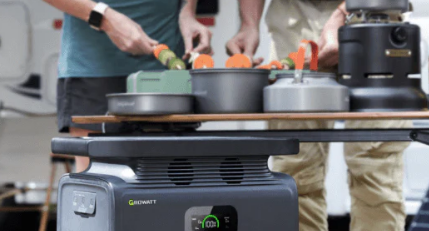Home backup power systems, such as generators and UPS units, play a crucial role in providing electricity during power outages. To ensure their reliability and longevity, proper maintenance and care are essential. In this article, we will discuss important guidelines for maintaining and caring for your home backup power systems.
- Read the Manufacturer's Manual: Before performing any maintenance tasks, carefully read and understand the manufacturer's manual for your backup power system. The manual provides specific instructions and guidelines for maintenance procedures, ensuring proper handling and safety.
- Regular Inspection: Perform regular visual inspections of your backup power system to identify any signs of wear, damage, or loose connections. Look for oil leaks, corroded parts, frayed wires, or any other visible issues. Inspect the fuel lines, exhaust systems, batteries (if applicable), and electrical connections. If you notice any problems, consult a professional technician for repairs or replacements.
- Fuel System Maintenance (For Generators): If you have a generator that operates on fuel, proper fuel system maintenance is crucial for optimal performance. Follow these guidelines:
a. Fuel Quality: Use clean and fresh fuel to prevent fuel contamination issues. If the fuel has been stored for a long time, consider using a fuel stabilizer to maintain its quality.
b. Fuel Level: Regularly check the fuel level in the tank. Ensure that the fuel is at an adequate level to meet your home power backup needs.
c. Fuel Filters: Clean or replace fuel filters as recommended by the manufacturer. Clogged filters can restrict fuel flow and affect the generator's performance.
d. Fuel System Flushing: Periodically flush the fuel system to remove any accumulated debris or contaminants. Consult the manufacturer's guidelines for the recommended flushing intervals and procedures.

- Battery Maintenance (For UPS Units and Solar Power Systems): If your backup power system utilizes batteries, proper battery maintenance is essential to ensure their reliability and longevity. Follow these guidelines:
a. Battery Inspection: Regularly inspect the battery terminals and connections for any signs of corrosion or loose connections. Clean the terminals if necessary and ensure a secure connection.
b. Battery Testing: Test the battery performance periodically, especially if your backup power system has been idle for an extended period. Use a battery tester or consult a professional technician to assess the battery's health and capacity.
c. Battery Replacement: Batteries have a limited lifespan. Follow the manufacturer's guidelines for battery replacement intervals and procedures. Replace batteries when their performance deteriorates or as recommended by the manufacturer.
- Cooling System Maintenance: Many backup power systems, especially generators, have cooling systems to regulate engine temperature. Proper cooling system maintenance is essential for their efficient operation. Follow these guidelines:
a. Cooling System Inspection: Regularly inspect the cooling system components, such as the radiator, coolant hoses, and fan belts. Look for leaks, cracks, or signs of damage. Ensure that the coolant levels are within the recommended range.
b. Cooling System Cleaning: Clean the cooling system components as recommended by the manufacturer. Remove any debris or dirt that may obstruct airflow and affect cooling performance.
c. Coolant Replacement: Periodically replace the coolant as per the manufacturer's guidelines. Coolants lose their effectiveness over time, and regular replacement ensures proper engine cooling.
- Professional Maintenance: While some maintenance tasks can be performed by homeowners, it is advisable to schedule professional maintenance for your backup power system. A qualified technician can conduct in-depth inspections, perform intricate repairs or replacements, and ensure compliance with safety standards.
- Safety Precautions: During maintenance and care procedures, always prioritize safety. Disconnect the power source and follow proper safety protocols to prevent electrical shock or other accidents. Wear appropriate protective gear, such as gloves and goggles.